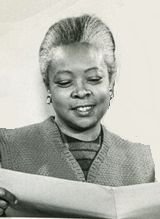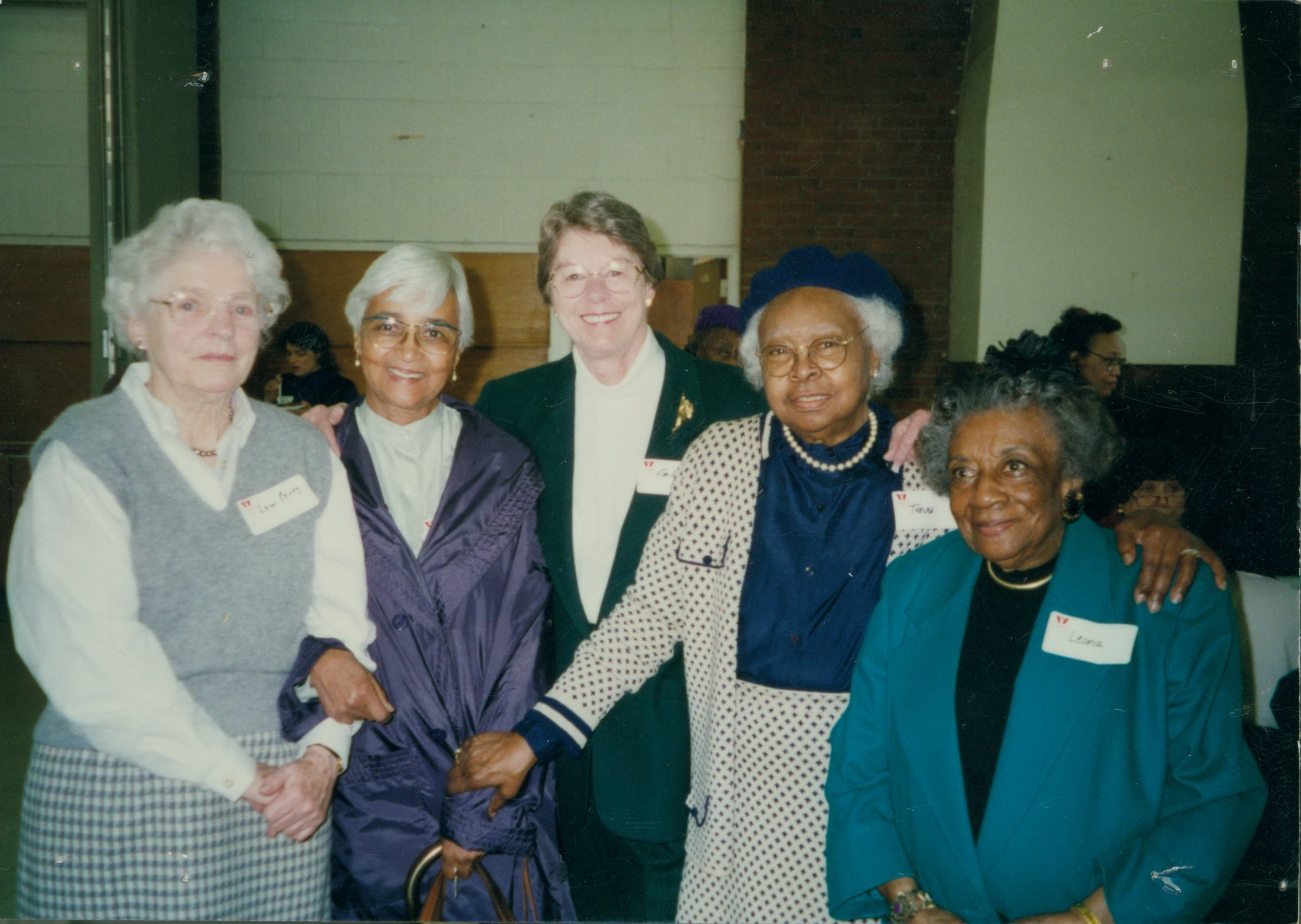Visionary Leader Thelma Caldwell
Thelma Caldwell was a visionary leader at a pivotal time in the history of both the YWCA of Asheville and the country. Until the 1970s, there were two YWCAs in Asheville; one, the Central YW, was known as the white branch, while the other, the Phyllis Wheatley Branch, was recognized as the Black branch. In 1961, Caldwell came to Asheville as director of the Phyllis Wheatley branch, and, until her retirement in 1975, worked intentionally and strategically to ensure the successful social and physical integration of the YWCA of Asheville. According to UNCA historian Dr. Sarah Judson, it is not an overstatement to say that on her watch, Caldwell set the YWCA of Asheville on a new trajectory.
Caldwell was born Elvia Thelma McRae on Oct. 21, 1912, in Rockingham, in Richmond County NC. Her father, Rufus, was a master bricklayer and her mother, Elvia, a homemaker. She received a BA from Shaw University in Raleigh, and returned to Richmond County to teach high school for 10 years. Following her marriage to Ernest Bruce Caldwell, she moved with her husband to Portland, ME, where she directed a USO Center, and became involved with the YWCA as a volunteer.
Caldwell was a powerhouse who was committed to the ideals and work of the YWCA. Her first paid position with the YW was as the Teen Program director in Wilmington, DE, in 1945. From 1948 - 1960, she held various leadership positions in Dayton, OH, area YWCAs, all the while doing graduate work at the Temple School of Social Work, Ohio State, and Miami University of Ohio.
Judson writes that when, in 1970, YWCA USA (then the Young Women’s Christian Association) mandated that it was time to fully desegregate all facilities nationally, this process had already taken hold in Asheville. When the new building on South French Broad was completed in 1963, Caldwell had “urged that the name of the building reflect its location, not its racial make-up.” So, instead of naming the new facility after a notable colonial African American poet, she successfully advocated for naming the building simply the South French Broad YWCA. Caldwell said later in an interview that everything around opening this new facility, from naming to programs offered and resources made available, was intentional, and focused on creating a fully integrated space that was welcoming and supportive of all women and girls in Asheville and Buncombe County.
In 1974, one year before her retirement, she received a one-year appointment from the International YWCA to serve as program consultant for the YWCA of Papua, New Guinea. The announcement of Caldwell’s appointment in the Asheville Citizen Times March 17, 1974 noted Caldwell’s leadership in implementing national YWCA policies as well as the Asheville YW’s “pioneering innovative programs in response to human needs” under Thelma Caldwell’s leadership.
Retirement did not slow her down. A newspaper article reporting her retirement in 1975 quoted her as saying that after she retired, she wanted to learn to swim – at the YW! Thelma Caldwell’s advocacy work continued into her retirement. In Angels Unaware, a 1995 collection of interviews with Asheville women of color (available in Special Collections at Pack Library), Caldwell spoke about her work on the U. S. Commission of Civil Rights, working to secure human rights for migrant workers. She remained active in the AAUW, Mount Zion Missionary Baptist Church, the Buncombe County Council on Aging, and the NAACP. She was the treasurer of the Blue Ridge Mental Health Association, and this is just a partial list. We don't know if she ever took those swimming lessons, but she revealed in this interview that she did learn to drive after retirement.
Thelma Caldwell died August 6, 2004, at Mission Hospital, leaving an inspiring legacy of racial, gender and economic justice advocacy, and a deep sense of caring for underserved and marginalized groups. She remains the embodiment of the YWCA’s mission to eliminate racism, empower all women, and promote peace, justice, freedom and dignity for all.



